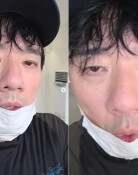Concerns on Korea’s conservatives
Concerns on Korea’s conservatives
Posted July. 04, 2019 07:33,
Updated July. 04, 2019 07:33
Gwanghwamun, where various types of street rallies used to be held, is being filled with people supporting alternative rights on weekends these days. The protesters call for President Moon Jae-in to step down and former President Park Geun-hye shoud be freed from prison. Rep. Cho Won-jin, co-leader of the Woori Republic Party, is a frequent speaker at the Gwanghwamun rallies.
The Woori Republican Party is not alone. The Liberty Korea Party, the major opposition party, declares itself conservative, but it is questionable whether it is really so. The contents and philosophy of conservatism is rather weak. Korea’s conservatives, which lead the success of fast economic growth after President Park Chung-hee, has lost its identity in the age of low growth. President Lee Myung-back initially pioneered business-friendly policies, but later shifted to more populistic policies and joint growth. President Park Geun-hye promised the democratization of economy from the start. The Korean conservative parties were known for their anti-communist and pro-American traits. But this position has gotten astray in foreign relations and security as U.S. President Donald Trump calls North Korean dictator Kim Jong Un “my friend.”
What does “being conservative” mean? According to British politician Edmund Burke of the 16th century, known as the “Father of Conservatism,” being conservative is more of an attitude of life and society, rather than a specific ideology. While liberals strive to build an ideal society based on trust for reason through reform, conservatives acknowledge the limitations of human, respect tradition and are cautious about reform. Conservatives also oppose the abuse of political power and support individual freedom and orderly democracy. Political parties that identify themselves as conservative, such as the Liberty Korea Party and the Bareunmirae Party, should reflect on whether they have represented such values.
There should be a balance between conservatives and liberals. History teaches us through the examples of the Cultural Revolution of China or modern-day North Korea that the revolution of communists aspiring to build a paradise ended up in misery. Liberals’ efforts to overcome social paradox is also crucial, just as the conservatives being wary of the side effects of artificial reform.
To refuse adapting to changes is the action of reactionaries, not that of conservatives. Just as Korean liberals need to keep a distance from blindly following the North Korean regime or socialist revolutionism, Korean conservatives need to distinguish themselves from extremists.
The Korea Liberal Party has launched a project to promote a major shift in economy by 2020. It has proclaimed to invite leading experts to come up with policies that can replace errors of the Moon Jae-in administration’s policies. We hope that real solutions would be tabled, which can redefine the values of conservatism and revitalize the economy. We also look forward to convincing alternatives for foreign policy, national security and social welfare.
Yeon-Su Shin ysshin@donga.com




![[김순덕의 도발] ‘李부터 연임’ 개헌, 이 대통령은 가능성을 말했다](https://dimg.donga.com/c/138/175/90/1/wps/NEWS/IMAGE/2026/01/16/133172656.1.jpg)

![“설거지해도 그대로”…냄비 ‘무지개 얼룩’ 5분 해결법 [알쓸톡]](https://dimg.donga.com/c/138/175/90/1/wps/NEWS/IMAGE/2026/01/15/133164664.3.png)
